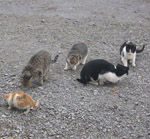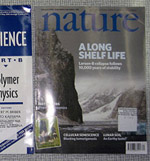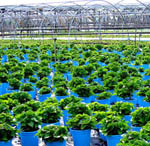Can wildlife farming save rare animals from being hunted to extinction?
Wildlife farming in Southeast Asia has emerged as a potential conservation tool for rare and threatened species that are regularly poached in the wild primarily for upscale consumers in urban markets. The idea is that if farms can raise rare monkeys, snakes, turtles, and other animals legally on farms, it will increase supply and reduce prices thus reducing the incentive for people to hunt wild animals to extinction.
But a new study shows that wildlife farming is actually bad for conservation. Researcher Rebecca Drury from the University of London interviewed wild meat consumers - made up primarily of wealthy men - in Hanoi, Vietnam and concluded that farming will have the unintended consequence of increasing demand for wild-caught animals.
She found that that the interviewees consumed wild animals specifically because they were rare and therefore a symbol of exclusivity, wealth and power. The respondents considered wild meat better tasting and healthier and thought of farm-raised wildlife as lower quality.
The study author concludes that wildlife farming will introduce a larger number of people in Hanoi to these animal products by making them more affordable. This will ultimately translate into higher demand for the more prestigious wild-caught animals.
These findings complement research by the Wildlife Conservation Society, which found that wildlife farms were hurting conservation by regularly bringing animals in from the wild to supplement domestic sources.
Drury's research highlights the vicious cycle of the demand for rare and threatened animals. Wealthy people in cities consume these animals specifically because they are rare. This leads to them being hunted which furthers their rarity. Drury recommends increased regulation of illegal hunting and improved public outreach. She says,
"Regulation and enforcement should be strengthened…Conservation policy should also seek to prevent listed species being farmed for their meat and to reduce consumer demand for wild-caught animal products. This should include social marketing campaigns designed by social marketing experts and informed by a thorough understanding of the complex social motivations driving consumer demand for wild animal products achieved using appropriate methods."
--Reviewed by Rob Goldstein
Drury, R. (2009). Reducing urban demand for wild animals in Vietnam: examining the potential of wildlife farming as a conservation tool Conservation Letters DOI: 10.1111/j.1755-263X.2009.00078.x




 Herps
Herps
Reader Comments